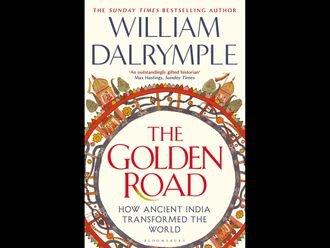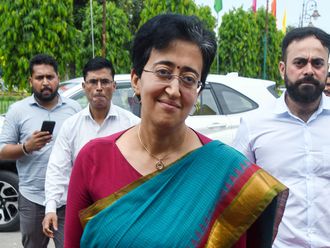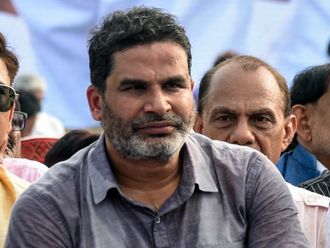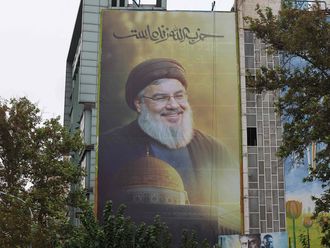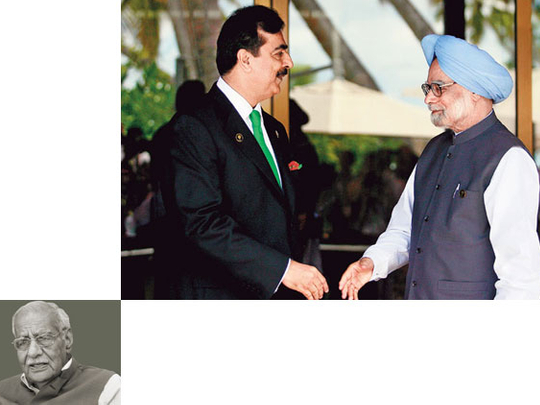
The issue of the two army chiefs, in India and Pakistan, still dominate the discussions. Chief of Army Staff General V.K. Singh has done the most unprecedented thing by going to the Supreme Court over his year of birth which he claims is 1951 while the government says it is 1950, meaning thereby he retires this May.
I wish the matter had been handled with care and caution. Preferably some amicable settlement should have been found and things not allowed to come to such a pass. Defence Minister A.K. Antony is known to be balanced and experienced. Why did he let the issue reach the point of no-return?
Yet that does not justify Gen Singh's knock on the Supreme Court's door. This is the worst choice he opted for. What BJP leader Jaswant Singh, a parliament member, has said tantamounts to Bonapartism. He says the sword of the armed forces has been blunted. Thank God, he is not in the government. Otherwise, the retired army officer that he is, he would have done unimaginable harm to democracy. It is a pity that even after 15 years in parliament the dictatorial tendencies in him have not yet been worn out. In democracy, people's sovereignty, the civil side, is supreme and not the military or any other institution.
Woefully, the views aired by the sacked Naval chief Vishnu Bhagwat are no different. Understandably, he is bitter because he was a victim of communalism — the BJP was in power. But at least he maintained the balance of not going to the Supreme Court.
When I rang up former air chief Idris Latif at Hyderabad, he was horrified over Gen Singh's appeal to the Supreme Court. He is probably of the old school that service comes before self and that the military does not challenge the order of a government.
Resignation
After Gen Singh had accepted the year 1950 for promotions, particularly at the time of his elevation as army chief, he should not have gone back on his commitment. People are proud of the armed forces but they do not want them to be anything except being apolitical. Once the government, elected by the people, decides anything there is no question of disobeying it. Gen Singh should have resigned and then gone to the court if he was so incensed.
I wish the BJP had rapped Gen Singh on the knuckles. Or, does Jaswant Singh represent their viewpoint? No doubt, the government has handled the case insensitively. Gen Singh has wrongly been advised and he has compromised the position he holds.
The government has filed a caveat in the Supreme Court so that the case is not decided without hearing the other side. It is a case of indiscipline and should have been dealt with that way, not through the court. I am shocked to hear that some compromise has been tried through back channels. This should have been done before the army chief went to court. Now it looks like a compromise at the expense of people's sovereignty.
In Pakistan, General Ashfaq Pervez Kayani case has been taken over by some other developments. Prime Minister Yousuf Raza Gilani put the army chief in a spot. Not only that, Gilani dismissed his defence secretary and went on to say that he would not tolerate "a state within state."
While the army posted at Islamabad the infamous brigade which has helped stage coups in the past, Gilani has convened the meeting of parliament to declare the confrontation was between democracy and dictatorship. He wanted a vote of confidence in him but the consensus was on the support of democracy.
I know Gilani went out of his way to defend in parliament Gen Kayani and ISI chief Shuja Pasha when America killed Osama Bin Laden at Abbotabad without letting Islamabad know. But everyone learns from mistakes and Gilani is no exception. In fact, he has brought the nation together behind the demand of democracy after realising that whatever the outcome of the crisis, Pakistan's problems essentially flow from the control of the army over administrative matters. Another development in Pakistan is that the Supreme Court has issued a contempt notice to Gilani. He has been taken to task for not obeying the court's order for reopening the cases of corruption against President Asif Ali Zardari and former prime minister Benazir Bhutto.
But whatever the outcome he is the first prime minister who has withstood the pressure of the army. True, all eyes are on the Supreme Court — the Supreme Court which gave legal sanctity to the first coup by General Ayoub Khan, inventing "a doctrine of necessity". Chief Justice Iftikhar Choudhary has given independence to the institution, something which Pakistan needs.
Indeed, Pakistan has changed. But India is yet to understand how. People and political parties are unanimous in opposing the return of the military. Democracy has come to stay. This prepares the ground for both countries to be friendly neighbours. There is no option to peace.
Kuldip Nayar is a former Indian High Commissioner to the United Kingdom and a former Rajya Sabha member.


